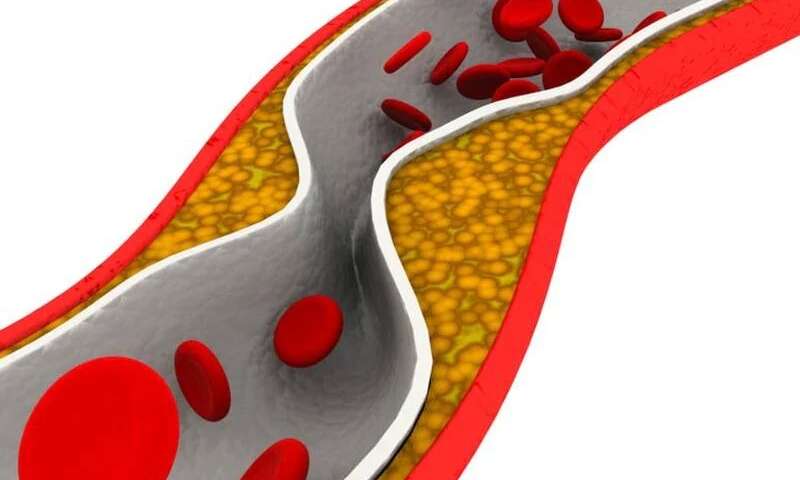- Home
- Editorial
- News
- Practice Guidelines
- Anesthesiology Guidelines
- Cancer Guidelines
- Cardiac Sciences Guidelines
- Critical Care Guidelines
- Dentistry Guidelines
- Dermatology Guidelines
- Diabetes and Endo Guidelines
- Diagnostics Guidelines
- ENT Guidelines
- Featured Practice Guidelines
- Gastroenterology Guidelines
- Geriatrics Guidelines
- Medicine Guidelines
- Nephrology Guidelines
- Neurosciences Guidelines
- Obs and Gynae Guidelines
- Ophthalmology Guidelines
- Orthopaedics Guidelines
- Paediatrics Guidelines
- Psychiatry Guidelines
- Pulmonology Guidelines
- Radiology Guidelines
- Surgery Guidelines
- Urology Guidelines
PCR statement on Interventions with paclitaxel drug-coated balloons

Dr Alexandra Lansky has presented a PCR statement on clinical outcomes after interventions with paclitaxel drug-coated balloons at EuroPCR 2019.EuroPCR is World-Leading Course in interventional cardiovascular medicine and the official annual meeting of the European Association of Percutaneous Cardiovascular Interventions (EAPCI) is being held at the Palais des Congrès - Paris, France.
This PCR statement on paclitaxel drug-coated balloons (DCB) use in peripheral interventions addresses the controversy raised by the meta-analysis of K. Katsanos, MD, PhD (Patras University Hospital, Rion, Greece) and colleagues, published in late 2018. The Katsanos meta-analysis prompted widespread concern in the interventional community by suggesting that treatment with paclitaxel-eluting stents or DCBs for a femoropopliteal disease is associated with increased death beyond 1 year out to 5 years compared with uncoated balloon therapy.
The statement outlines that, as for any meta-analysis, the Katsanos analysis is subject to major inherent methodological limitations that prevent reliable interpretation of the primary findings. These include the use of study-level (rather than patient-level) data, limited longterm data and high dropout rates (>80% loss of patient data at 4-5 years), unknown repeated exposure to paclitaxel during re-interventions, lack of adjudication of causes of death, and subsequent corrections to primary source data (announced in February 2019).
The Statement acknowledges that, while the results of the meta-analysis itself were far from conclusive, further evaluation is warranted given the widespread use of paclitaxel in peripheral interventions and the implications of the reported hazard. The publication did serve as a wakeup call and swift action on the part of the interventional community, including industry and the FDA, to convene collaborative discussions, new analyses, and presentations of patient-level pooled data. A planned industry-wide pooled analysis is anticipated to be presented at an upcoming FDA panel meeting in mid-June, with the rapid dissemination of preliminary findings and planned next steps to the broader physician community.
The statement emphasises that additional evidence from individual sponsor-driven patient-level analyses of clinical trial data, as well as large-scale claims data, have failed to replicate the results of the meta-analysis with respect to an association of paclitaxel exposure with long-term mortality. Furthermore, no safety signal has ever been shown in coronary DCB applications in the long-term.
PCR acknowledges the vital need for a carefully conducted and adjudicated industry-wide patient-level pooled analysis to compare long-term safety outcomes. This analysis is planned to be presented at the upcoming FDA panel on June 19th and 20th. Finally, PCR strongly supports resuming, under careful safety oversight, two large prospective randomised trials (BASIL 3 and SWEDPAD) that were suspended shortly after the Katsanos publication. These trials would provide the vital evidence necessary to evaluate the safety of DCB to better inform clinicians in everyday practice.
Pending the availability of more conclusive data, there is currently no strong evidence to justify changing clinical practice and clinicians should continue to use best judgment in the use of paclitaxel-based DCBs.

Disclaimer: This site is primarily intended for healthcare professionals. Any content/information on this website does not replace the advice of medical and/or health professionals and should not be construed as medical/diagnostic advice/endorsement or prescription. Use of this site is subject to our terms of use, privacy policy, advertisement policy. © 2020 Minerva Medical Treatment Pvt Ltd